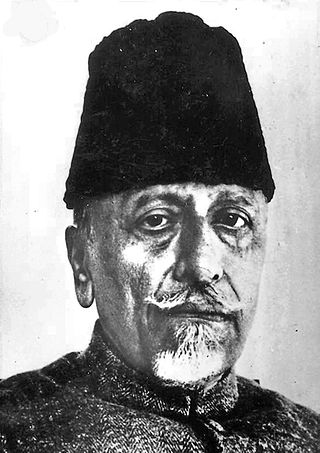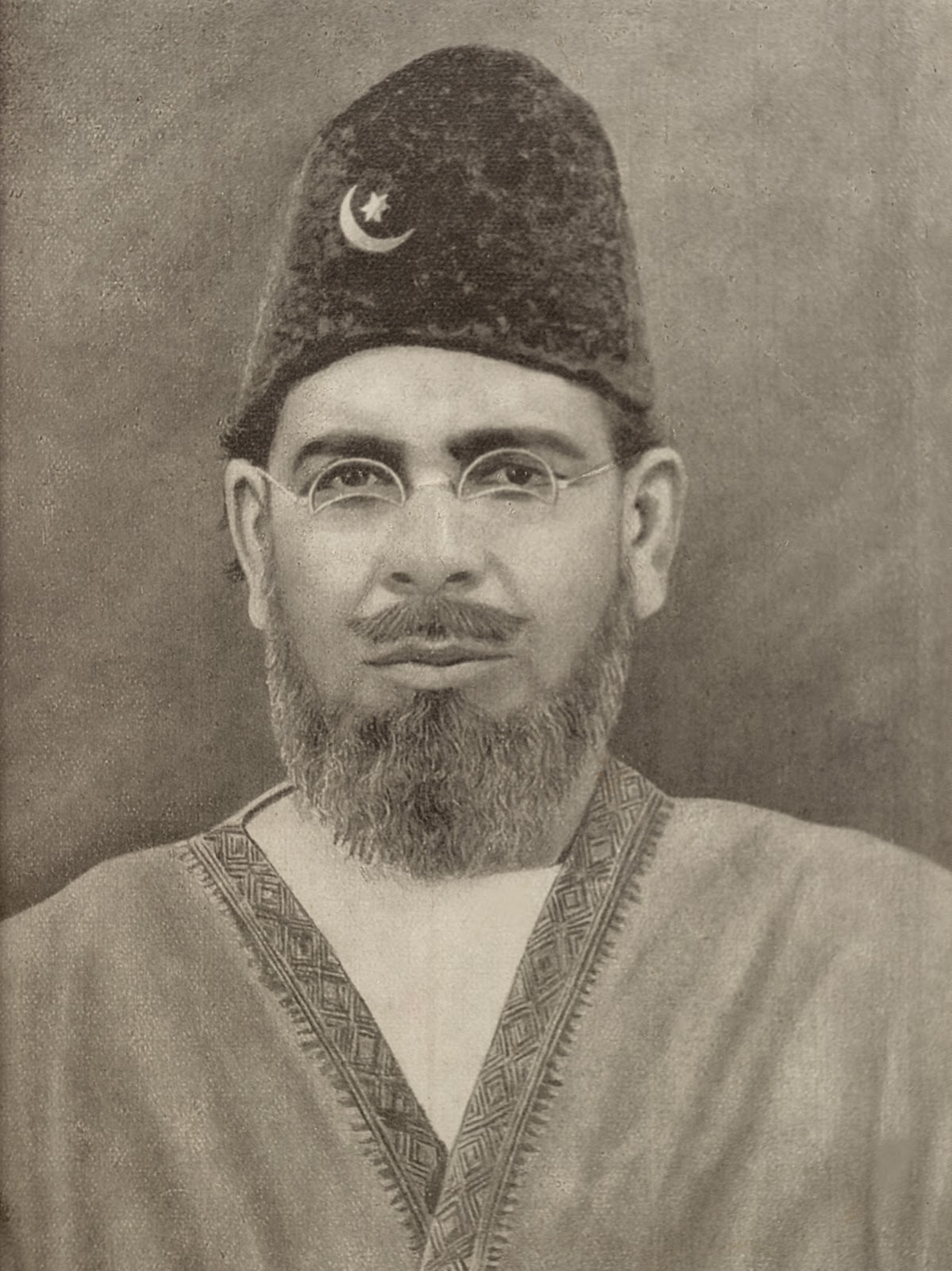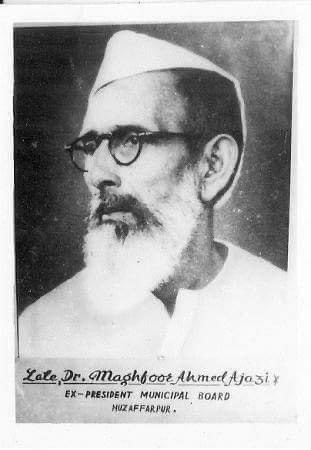This article needs additional citations for verification .(August 2020) |
The Muslim Independent Party was a political party founded in India in 1935 by Abul Muhasin Muhammad Sajjad.
This article needs additional citations for verification .(August 2020) |
The Muslim Independent Party was a political party founded in India in 1935 by Abul Muhasin Muhammad Sajjad.
The party was founded in 1935 by Abul Muhasin Muhammad Sajjad, the Amir of Imarat-e-Sharia, Bihar, [1] to represent Muslims in Bihar who were disillusioned with Congress and the Muslim League. As Congress did not have a clear policy related to India's Muslim population and the Muslim League was advocating a separate nation, which was dividing the country, the Muslims of Bihar decided to establish their own Party.
Barrister Mohammad Yunus and Syed Abdul Aziz were two of the most influential Bihari Muslim leaders at the time. Yunus formed the Muslim Independent Party, stating their opposition to both Congress and the Muslim League by using the word "Independent", and Syed Abdul Aziz formed the Muslim United Party. In the 1937 election, the party emerged as the largest Muslim political party in Bihar and the second largest party in Bihar after Congress.
Out of 40 seats reserved for Muslims, the Muslim Independent Party won 20. Syed Abdul Aziz's Muslim United Party won seven of the seats, four Muslims were elected on the Congress ticket, and eight Independent Muslim candidates were also elected. Yunus won for the party in the rural Patna West seat, and Sayyid Minatullah Rahmani won in Bhagalpur/Munger. The Muslim Independent Party formed the government in Bihar in 1937. Yunus, the party president, became the chief minister of Bihar on 1 April 1937. The Muslim Independent Party wanted to form an coalition government with Congress to prove to the Muslim League that Hindu and Muslims, these two biggest religious groups, could exist with equal dignity and rights, but Congress rejected Yunus's proposal and attempted to form a government alone. Youth leader Jayaprakash Narayan, a staunch socialist, strongly criticised Yunus's acceptance of the governor's invitation to form a government. His Congress Socialist Party organised protests against the Muslim Independent Party government.
The party soon lost power, allowing Congress to form the government in the state. [2]

The All-India Muslim League (AIML) was a political party established in Dhaka in 1906 when some well-known Muslim politicians met the Viceroy of British India, Lord Minto, with the goal of securing Muslim interests on the Indian subcontinent.

Jamaat-e-Islami, or Jamaat as it is simply known, is an Islamist political party which is based in Pakistan and it is the Pakistani successor to Jamaat-e-Islami, which was founded in colonial India in 1941. Its objective is the transformation of Pakistan into an Islamic state, governed by Sharia law, through a gradual legal, and political process. JI strongly opposes capitalism, communism, liberalism, and secularism as well as economic practices such as offering bank interest. JI is a vanguard party: only "elite" supporters are members. Below them are "affiliates", and beneath them are "sympathizers". The party leader is called an ameer. Although it does not have a large popular following, the party is quite influential and considered one of the major Islamic movements in Pakistan, along with Deobandi and Barelvi.

Abul Kalam Ghulam Muhiyuddin Ahmed bin Khairuddin Al-Hussaini Azad was an Indian independence activist, Islamic theologian, writer and a senior leader of the Indian National Congress. Following India's independence, he became the First Minister of Education in the Indian government. He is commonly remembered as Maulana Azad; the word Maulana is an honorific meaning 'Our Master' and he had adopted Azad (Free) as his pen name. His contribution to establishing the education foundation in India is recognised by celebrating his birthday as National Education Day across India.

Syed Sulaiman Nadvi was a Pakistani historian, writer and scholar of Islam. He co-authored Sirat-un-Nabi and wrote Khutbat-e-Madras. He was a member of the founding committee of Jamia Millia Islamia.

Muhammad Ali Jauhar, was an Indian Muslim activist, prominent member of the All-India Muslim League, Indian National Congress, journalist and a poet, a leading figure of the Khilafat Movement and one of the founders of Jamia Millia Islamia.

Syed Abul Hasan Ali Hasani Nadwi was a leading Islamic scholar, thinker, writer, preacher, reformer and a Muslim public intellectual of 20th century India and the author of numerous books on history, biography, contemporary Islam, and the Muslim community in India, one of the most prominent figure of Deoband School. His teachings covered the entire spectrum of the collective existence of the Muslim Indians as a living community in the national and international context. Due to his command over Arabic, in writings and speeches, he had a wide area of influence extending far beyond the Sub-continent, particularly in the Arab World. During 1950s and 1960s he stringently attacked Arab nationalism and pan-Arabism as a new jahiliyyah and promoted pan-Islamism. He began his academic career in 1934 as a teacher in Nadwatul Ulama, later in 1961; he became Chancellor of Nadwa and in 1985, he was appointed as Chairman of Oxford Centre for Islamic Studies.

Mohammad Yunus was the first Premier of British India's Bihar Province. During his career, the heads of provincial governments were called Prime Ministers. He governed for three months in 1937, during the state's first democratic election.

Maghfoor Ahmad Ajazi was a political activist from Bihar, prominent in the Indian independence movement.
The Aligarh Movement was the push to establish a modern system of Western–style scientific education for the Muslim population of British India, during the later decades of the 19th century. The movement's name derives from the fact that its core and origins lay in the city of Aligarh in Central India and, in particular, with the foundation of the Muhammadan Anglo-Oriental College in 1875. The founder of the oriental college, and the other educational institutions that developed from it, was Sir Syed Ahmed Khan. He became the leading light of the wider Aligarh Movement.
Jamaat Ali Shah (1834–1951) was a Sufi of the Naqshbandi order and an author. He was President of All India Sunni Conference and the leader of the Shaheed Ganj Mosque. He was an influential leader of the Pakistan Movement.
The Bengal Provincial Muslim League (BPML) was the branch of the All India Muslim League in the British Indian province of Bengal. It was established in Dacca on 2 March 1912. Its official language was Bengali. The party played an important role in the Bengal Legislative Council and in the Bengal Legislative Assembly, where two of the Prime Ministers of Bengal were from the party. It was vital to the creation of the Dominion of Pakistan, particularly after its election victory in 1946.
Wali Rahmani was an Indian Sunni Islamic scholar and academician who founded Rahmani30. He was a member of the Bihar Legislative Council from 1974 to 1996. He served as the general secretary of the All India Muslim Personal Law Board and Sajjada Nashin of the Khanqah Rahmani in Munger.
Aziz-ul-Rahman Usmani was an Indian Sunni Muslim scholar who served as first Grand Mufti of Darul Uloom Deoband. He is best known for his Fatawa Darul Uloom Deoband. His brother was Shabbir Ahmad Usmani.
Minnatullah Rahmani was an Indian Sunni Muslim scholar who served as the first General Secretary of All India Muslim Personal Law Board. He was an alumnus of Darul Uloom Nadwatul Ulama and Darul Uloom Deoband, and a member of Bihar Legislative Assembly. He also served as the General Secretary of the Jamiat Ulama Bihar. His father Muhammad Ali Mungeri was the founder of Nadwatul Ulama and his son Wali Rahmani established the Rahmani30 institute.
Abul Muhasin Muhammad Sajjad was an Indian Islamic scholar who was one of the most influential ulemas of the 20th century. Sajjad was a founder of Anjuman-Ulama-i-Bihar, Jamiat Ulema-e-Hind, and Imarat-i-Sharia. A leader in the Indian independence movement, Abul Muhasin Muhammad Sajjad participated in the Non-cooperation Movement, Khilafat Movement, and Civil Disobedience Movement; he opposed the partition of India and championed the concept of composite nationalism. He also founded the Muslim Independent Party in 1935 to represent Muslims in Bihar who were disillusioned with Congress and the Muslim League.The Muslim Independent Party formed the government in Bihar in 1937. Yunus, the party president, became the chief minister of Bihar on 1 April 1937.
Muḥammad Ali Mungeri was an Indian Muslim scholar who was the founder Nadwatul Ulama and first chancellor of its Darul Uloom, a major Islamic seminary in Lucknow. He extensively wrote against Christianity and Ahmadiyya. His books include Ā'īna-e-Islām, Sāti' al-Burhān, Barāhīn-e-Qāti'ah, Faisla Āsmāni and Shahādat-e-Āsmāni.